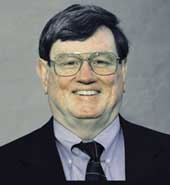The forces sweeping through the global
economy make it impossible for
many, if not most firms, to finish a
period of time longer than two or
three years still following the strategies
with which they started. Rather,
course corrections are necessary, and
what emerges is often quite different
than what was intended. The environment
usually dictates a firms actions
unless it controls that environment,
principally through some
transformational type of innovation.
And, as per Mintzberg, as opposed to
archetypes, what you find is various
combinations of the two extremes
along a continuum of approaches deliberate
and intended at one end and
emergent at the other.
IBMs 2008 survey of 1000 global
CEOs found that 80% of surveyed
CEOs anticipated even more change
in the future than the high levels that
they have recently experienced. And
the study also found that the perceived
gap between expected change
and the ability to cope with it had
tripled since IBMs 2006 survey of
1000 CEOs. This survey also
showed that the better performing
firms seek out change. The message
in this is that while firms strategize in
a deliberate way, they must also be
able to adapt to change or create it
which leads to emergent strategies.
What new practices have you observed
in the last decade as regards
strategy formulation and strategy execution?
Are these practices radically
different from the earlier practices?
What factors do you think
would have brought about this new
line of approaching strategy?
With regards to strategy formulation,
you see a large number of firms using
some type of balanced scorecard.
This is not a process introduced in
the last decade but it has hit its stride
in the last ten years and is now
widely utilized. There is more crossfunctional
focus with respect to innovation
strategies. Collaboration is a
key tool for successful innovation.
Ethnography as a way of learning
about the customers actual needs and
actual uses of products and services
has become a broadly utilized tool.
Proctor and Gamble and product/service
developer IDEO are probably the
best known practitioners of ethnography.
Speed, strategy formulation
and execution is now prerequisite to
strategy success in a number of industries.
For example, Stockholm
based fashion retailer H&M can put
new products into retail stores in as
little as 3 weeks after design begins
utilizing a global network of 700 plus
outsourced manufacturing operations.
This speed enables H&M to set
fashion trends at reasonable prices.
Cisco is about to change the world of
both strategy formulation and execution
with telepresence. Using the
Internet as its platform, telepresence
is a life sized video conferencing systemthat
advances video conferencing
to new heights. In a matter of a few
hours, senior management from
around the globe can formulate strategy,
or senior management from corporate
office can check on execution
efforts in three or four countries with
an almost "being there" feeling.
There has been a pronounced effort to
make both strategy formulation and
execution global in perspective and
participation. At the business unit or
geographic regional level, the inclusion
of local customer needs as part of
strategy formulation is now much
more widespread. With respect to execution
you see a number of firms using
the balanced scorecard, dashboards,
daily profit and loss statements,
and some type of balanced
scorecard based software, for example,
IBM's "WorkplaceTM for Business
Strategy Execution."
Most of these practices are not radically
different from their predecessors,
except perhaps for ethnography
and some of the specific speed strategies
companies now use.
Telepresence is radical in the sense
that it is life sized.
What have brought about almost all of
these new approaches are change and
the speed of change around the globe.
These actions aremeans of attempting
to cope with change or the speed of
change. The only exception is the use
of ethnography which is really about
understanding and satisfying the customer.
With respect to the content issues involved
in strategy formulation and
execution, business model innovation,
sustainability, energy sources
and uses, and product/service and
process innovation have received significant
attention in recent years or
months and are going to be the most
critical issues in the next decade.
With respect to business model innovation,
some companies, GE and
Proctor & Gamble in particular, are
using their intellectual property to
create new business models for using
these properties to generate revenues
in ways not pursued previously.
Many if notmost companies are going
to be pursuing increased levels of innovation,
not only product/service
and process innovation, but also
business model innovation with respect
to sustainability and energy issues
as well as more traditional strategy content areas. Process innovation
becomes a critical sustainability and
energy strategy execution skill.
